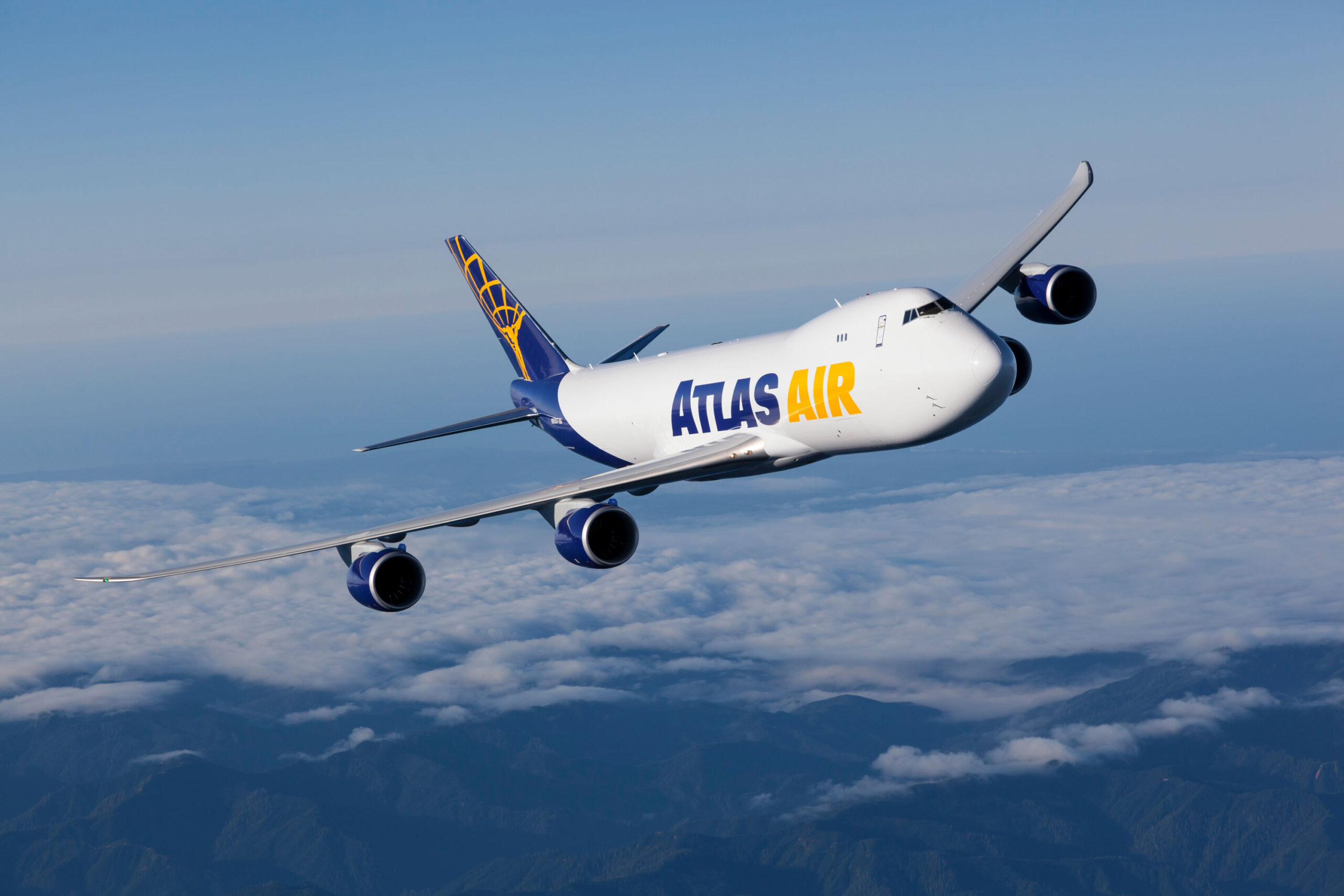Atlas Air revenues improve despite volume decline
05 / 05 / 2022

Photo: Atlas Air
Atlas Air Worldwide reported improvements in revenues during the first quarter of the year despite a decline in volumes.
The freighter lessor and operator saw first-quarter revenues increase by 20% on last year to $1bn, adjusted earnings before interest, tax, depreciation, amortisation (ebitda) increased 11.9% to $202,814 but net income dropped by 9.4% to $81.5m.
Last year, the company benefitted from a $40.9m, $31.9m after tax, of CARES Act (US government Covid support) grant income.
The company said that its figures were also negatively affected by increased pilot costs stemming from a new collective bargain agreement, a reduction in less profitable smaller gauage CMI flying, operational disruption due to omicron, and higher fuel prices.
Volumes in the first quarter declined by 6.7% year on year to 82,626 block hours.
On the positive side, Atlas benefited from higher yields and new and enhanced long-term contracts.
“We are off to an excellent start in 2022. We delivered strong earnings, despite the pandemic-related operational challenges we continue to navigate,” said Atlas Air Worldwide president and chief executive John Dietrich.
“We are seeing a sustaining shift in long-term customer demand for Atlas’ dedicated aircraft, and the speed and reliability airfreight provides.
“During the first quarter, our customers continued to enter and enhance long-term contracts with Atlas for dedicated freighter capacity.”
“We are expanding and diversifying our customer base, and increasing flying under long-term contracts with attractive rates and guaranteed levels of flying.”
Atlas is adding four new 747-8F and four new 777 freighter aircraft. All four of the new 747-8Fs have been placed with customers under long-term contracts, and there is “strong interest” for the new 777Fs as well.
Higher airline operations revenue primarily reflected an increase in the average rate per block hour, partially offset by a reduction in block hours, the company said.
The higher average rate per block hour was primarily due to higher yields (net of fuel), including the impact of new and extended long-term contracts, as well as higher fuel prices.
Block-hour volumes reflected a reduction in less profitable smaller gauge CMI service flying as well as operational disruptions due to the spike in Omicron cases globally.
“In Dry Leasing, segment revenue and contribution increased from the prior-year period primarily due to $5m of revenue received from maintenance payments related to the scheduled return of an aircraft, which was subsequently sold during the quarter,” Atlas said.
“Dry Leasing contribution also benefited from lower interest expense related to the scheduled repayment of debt.”
Atlas also completed a $100m accelerated share repurchase programme in April, buying 1.2m shares.
The company is also buying five of its existing B747-400Fs at the end of their leases during the course of this year, one of which was acquired in March.
Atlas expects to complete the remaining four aircraft acquisitions between May and December 2022.
“Acquiring these widebody freighters underscores our confidence in the demand for international airfreight capacity, particularly in express, e-commerce and fast-growing global markets,” Atlas said.
“Keeping these aircraft in our fleet ensures continuity of capacity for our customers, which will drive strong returns for Atlas in the years ahead.”














